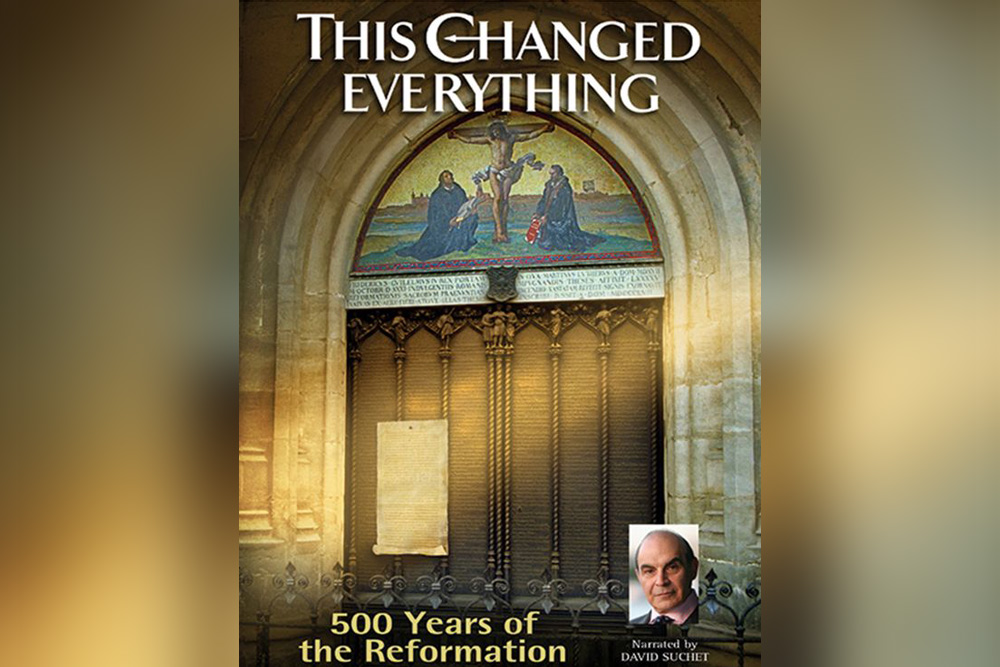Four faculty and staff at Eastern Mennonite University are interviewed in a documentary about the Protestant Reformation, This Changed Everything: 500 Years of Reformation. The documentary, released in September, is a production of Christian History Institute.
Participants include Ted Grimsrud, emeritus professor of peace theology; Michael King, now vice president of Eastern Mennonite Seminary and the School of Graduate and Professional Studies; Mary Sprunger, history professor and department chair; archivist and seminary professor Nate Yoder; and Daryl Byler, executive director of the Center for Justice and Peacebuilding.
The film gives a historical account of reformer Martin Luther’s life, the revolutionary act of his 95 theses, and the theological impact on Christianity. Key questions raised by the filmmakers are “Did the Reformation go too far?” and “Can the unity Jesus called for ever be achieved?”
“It gives a good overview of the 16th century Reformation in an interesting and engaging way,” says Grimsrud. “There is helpful attention paid to present-day relevance of that event.”
The EMU representatives primarily speak on Anabaptist history, specifically its role in and reaction to the Reformation. Other featured experts include university and seminary faculty, theologians and clergymen.
“Certainly, and appropriately, the bulk of the film focuses on the mainline Reformation – Lutherans and Reformed – and the Catholic response. But the Anabaptists do get lengthy and respectful attention,” says Grimsrud.
Byler was tapped primarily to talk about “the Center for Justice and Peacebuilding as a contemporary Anabaptist expression of engaging the world,” he said. “Mohan’s emphasis on the tendency of denominational bodies to stress their differences rather than commonalities is an important challenge in this new season of polarization.”
EMU’s featured experts and their talking points
- Grimsrud gives an introduction Anabaptist history, including Menno Simons’ early life as a Catholic priest and brother’s involvement in the small, violent “Munsterite” faction of Anabaptism.
- Sprunger explains historical context as to the political subversion of adult baptism. “It was a movement of the people,” she says in the film, peasants and artisans forming separate congregations with distinct personalities.
- Byler and King round out Anabaptist perspectives on nonviolence, a literal interpretation of the Sermon on the Mount and humanization of “the enemy.”
- Yoder contributes bonus material to the film about conscientious objectors in World War I and intra-church dynamics among early Anabaptists. He explains that the Anabaptist’s Reformation was “radical” in the sense that it was “going back to the root,” both to emulate the purity of early Christianity, and to excise the corruption resulting from the conflation of church and state.
The three-hour series is available on DVD and online streaming at www.thischangedeverything.com
